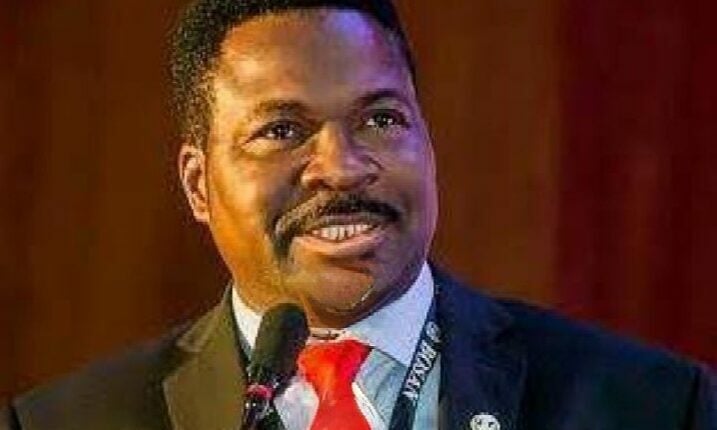Senior Advocate of Nigeria (SAN), Prof. Mike Ozekhome, has taken a swipe at the Nigerian government over what he described as a distortion of the concept of national security and continued harassment of legal practitioners in the country.
Speaking at the Nigerian Bar Association (NBA) 2025 Annual General Conference (AGC) held in Enugu last week, Ozekhome said that what government officials often parade as national security was nothing more than the protection of those in power.
“Let me first address where they talk about national security,” he said. “Right from the time of the Luggardian amalgamation of January 1, 1914, all the colonial masters, all the military in this country, up to the present government, that talk about national security, it is a lie. The reality is that their national security is actually government security. It is not security for you and I.”
To the cheers and claps of the audience, he added. “Many of you, when you were coming to Enugu for this journey, were you not scared? Were some of you not followed by fully armed personnel? Because there is no national security. It is just government security, security for those in power to manage or mismanage your resources. That is the idea of their so-called national security.”
Turning to the issue of legal rights, the human rights lawyer decried the growing intolerance towards lawyers and the disregard for their professional independence.
“As long as you do not respect citizens’ rights, for as long as you do not respect lawyers’ rights to practise their profession without molestation, we will continue to fight,” he declared.
Ozekhome recounted how the Economic and Financial Crimes Commission (EFCC) once seized his professional fees of N75 million paid to him while he was handling a case for a client.
“EFCC seized my money, N75 million. I was doing a case for a client. Guess what? Some lawyers were advising me to forget about the case and not go to court. And I asked, ‘When have we become so scared, so afraid, that we cannot even take care of our own rights as lawyers, not to talk of other citizens?’ If you cannot fight for yourself, how can you fight for others?”
He said he eventually challenged the matter in court, where both the trial court and the Court of Appeal ruled in his favour.
“Thank God the courts, up to the Court of Appeal, held that a lawyer does not need to know the source from which his professional fees are paid,” he stated.
According to him, the EFCC’s position implied that lawyers must begin to interrogate their clients about the source of their money for payment of professional fees.
“So, when a client comes to you, after you listen to their problems and you agree on a fee, you will ask the client, ‘Hello, you are going to pay me, what source is the money?’ Suppose he tells you, ‘I have just sold a property,’ then you say, ‘Okay, can I see the papers of the property so as to be sure the money is not laundered money?’ Common, we cannot go on like that,” he said, drawing applause from the audience.
Ozekhome, however, clarified that lawyers who knowingly receive or enable payment with proceeds of crime should face the law.
“If a lawyer is paid with proceeds of crime and the lawyer is aware, or is even an enabler of that proceeds of crime, do not misunderstand me, such a lawyer should also answer for it. But if a lawyer was honestly paid and he did not know, go after the people who paid the money, what we call the predicate offence, not the lawyer,” he explained.
The senior lawyer further stressed that human rights in Nigeria remained mere abstractions without good governance and basic amenities.
“Since 1948, the Universal Declaration of Human Rights, the African Charter on Human and Peoples’ Rights, the international convention, these rights we are talking about, we know them. But are we enjoying them? We are not enjoying the rights. When we do not have good governance and basic amenities, the rights mean nothing to us,” Ozekhome stated.











